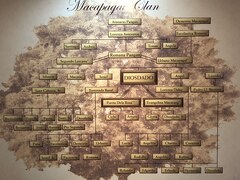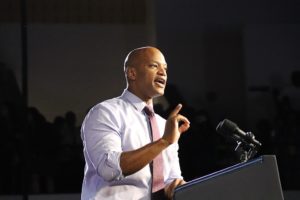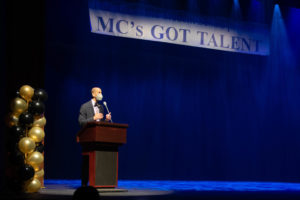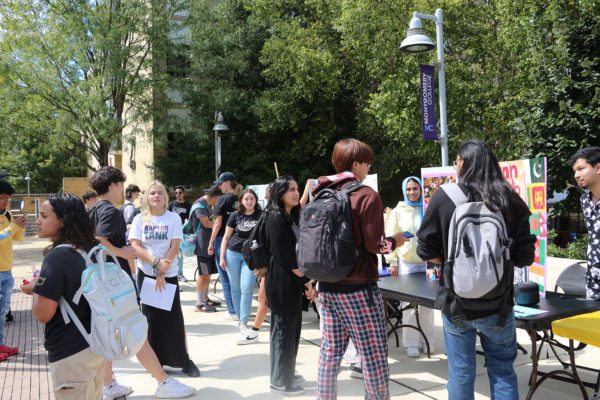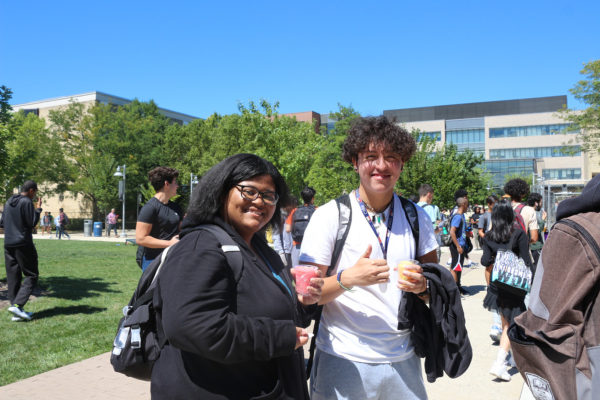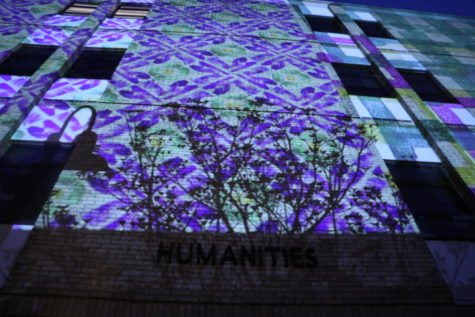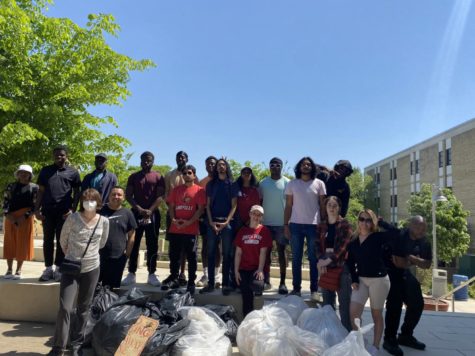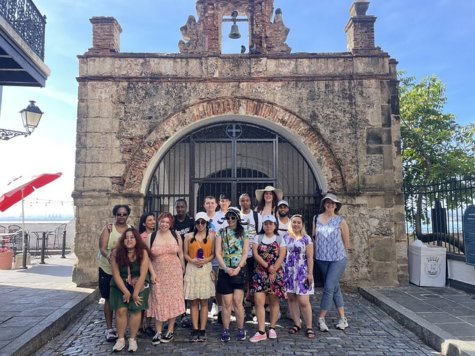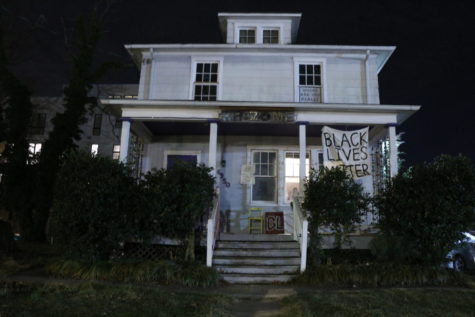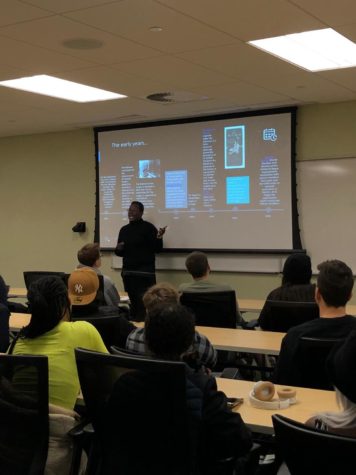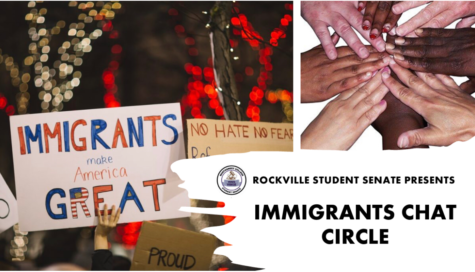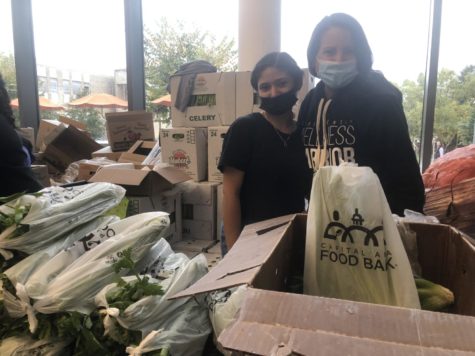The Office of Equity and Inclusion hosts its Spring Equity Dialogue: “Critical Race Theory Part Two: Reframing the Criminal Justice System from a CRT Perspective”
Screenshot of the Zoom Forum during Professor Katya Salmi’s presentation on “What does Critical Race Theory Really Means?” Courtesy of the Office of Equity and Inclusion.
March 31, 2022
On Thursday, February 24, 2022, Montgomery College’s Office of Equity and Inclusion hosted its Spring Equity Dialogue to continue the Critical Race Theory (CRT) dialogue, this time on Reframing the Criminal Justice System from a CRT Perspective. The forum aimed to investigate reformed-based policies and practices and what practices government agencies, schools, and the can community implement. The forum also aimed to educate the audience on how decisions are made and how the public can influence those decisions through a racial equity lens.
The event brought together a team of experts in CRT to expose the participants to the systemic racism in the criminal justice system, particularly in policing. According to the programming, engaging the college community in conversations about what Critical Race Theory is and what isn’t can foster a more substantial college and institutional relationship.
The team of experts was composed of Sharon Wilder, Chief Equity and Inclusion Officer at Montgomery College, as a forum moderator. Jeanette Rojas, Equity and Inclusion Program Manager at Montgomery College, introduced the acknowledgments and the community agreements of the event. Katya Salmi, assistant professor of Sociology at Montgomery College, set the floor on “What does Critical Race Theory actually mean?”. Eric Ford, Director of The Choice Program at UMBC, and Dr. Kelly Quinn, Deputy Director at The Choice Program at UMBC on “Applied Racial Equity – The Choice Program at UMBC.”
The audience also heard the voices of Dr. Emerald Jones, Sociology Professor at Montgomery College, on “Race, gender, ethnic disparities & differences in policing practices.” Sonia Pruitt, Retired Captain at Montgomery County Police Department, and, Criminal Justice System professor at Montgomery College on “Systemic Racism (Accountability, Policy & Legislation). Professor Ginger Robinson, Criminal Justice Professor at Montgomery College on “Intervention & Legislative Change: From Criminal Justice to Criminal Legal.”
Professor Salmi started the conversation by painting a picture of the main arguments against Critical Race Theory and how misinformation has been masking the reality and purpose of CRT. She offered some data on the racial disparities in education outcomes in Montgomery County and the relevance of Critical Race Theory, especially in the local context. According to Professor Salmi, “CRT seeks to answer why and how racial disparities continue to exist in our society and social institutions even though legal segregation and discrimination were banned.” Professor Salmi’s words only testified to what Dr. Kelly Quinn and Eric Ford were about to speak of their programs.
Dr. Quinn started the conversation by showing what the young students of Maryland communities desire in the education setting. One of the most impactful words of young people revolved around being in a safe place to get the education they need. She says, “They [community youth] are calling for institutions that will serve them well, they are calling for more rec centers, more schools, and more safety.” That is exactly what The Choice Program at UMBC aims to do, to invest in the minority youth in Maryland communities, believing in their power and potential, advocating and providing educational and career resources. Ford says, “We seek to reframe stories of the oppressive youth legal systems with new stories, amplifying the voices of young people’s lived experiences […] We also have take on an intentional journey in trying to impact policy change.”
The conversation was followed by the powerful words of Dr. Emerald Jones, who spoke the names of all of the victims of police brutality and the racial profiling treatment of men and women of color. According to Dr. Jones, stereotypes and shaped racial thinking leads to racist assumptions; that is the real reason for the necessity of CRT. All individuals can receive what they need to thrive despite race, color, and age in an equity setting. Dr. Jones says, “When we look at the population, Blacks represent 12 to 13 percent of the total population, but when we talk about entering the criminal justice, police encounters and mass incarceration we [the Black community] represent more than any other racial and ethnic group.”
While on the subject of policing system, Sonia Pruitt gave her insights and experiences while working as a captain at Montgomery County Police Department. Pruitt drove the audience on a journey in history to explain how today’s power abuse is just a reflection and repetition of events from an oppressive slavery past. She says, “I do think it’s safe to say that the African American community suffers the greatest loss. Not only the loss of life but the loss of livelihood, loss of safe passage, loss of safe harbor, loss of safe homes, and loss of safe minds.”
Professor Ginger Robinson closed the conversation by explaining why public intervention is essential to this process change, especially to those involved in education. She shared some data and experiences as a lawyer on the pattern of school-prison affecting primarily students of color, especially the racial disparity in treatment towards young black males and females compared to white individuals. Often, young people of color are judged and forced to be viewed as adults to get harsher sentences. Professor Robinson offered the participants alternatives and program interventions that the public can participate in and amplify voices to break down the system and empower the community toward racial equity. She says, “Real change in this arena if we are talking about change in the criminal legal system, it happens at the state and the local level, that is where we can be most effective.”
The program was finalized by a great response from the nearly 70 participants in the room who listened attentively during all forum sessions. The Q&A of the event also had the public’s collaboration in brainstorming the role of educators in advocating for CRT. Many participants shared their opinions and additional resources available on the topic. The CEIO of Equity and inclusion at MC, Sharon Wilder, closed the Spring Equity Dialogue by saying, “These events [Equity Dialogues] highlight our ability to collaborate internally and externally to respond to community needs, which continues to place MC in a central position within the community and statewide to inform debates around contemporary issues.”
Danielle Costa works at the Office of Equity and Inclusion as a Student Representative.





